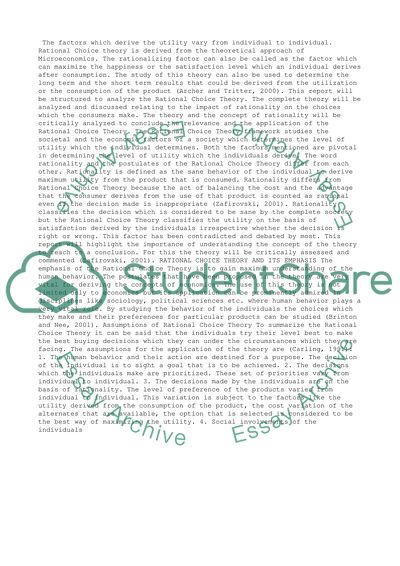Cite this document
(“Rational Choice Theory.What is rational in rational choice theory Essay”, n.d.)
Retrieved from https://studentshare.org/management/1474748-what-is-rational-in-rational-choice-theory
Retrieved from https://studentshare.org/management/1474748-what-is-rational-in-rational-choice-theory
(Rational Choice Theory.What Is Rational in Rational Choice Theory Essay)
https://studentshare.org/management/1474748-what-is-rational-in-rational-choice-theory.
https://studentshare.org/management/1474748-what-is-rational-in-rational-choice-theory.
“Rational Choice Theory.What Is Rational in Rational Choice Theory Essay”, n.d. https://studentshare.org/management/1474748-what-is-rational-in-rational-choice-theory.


